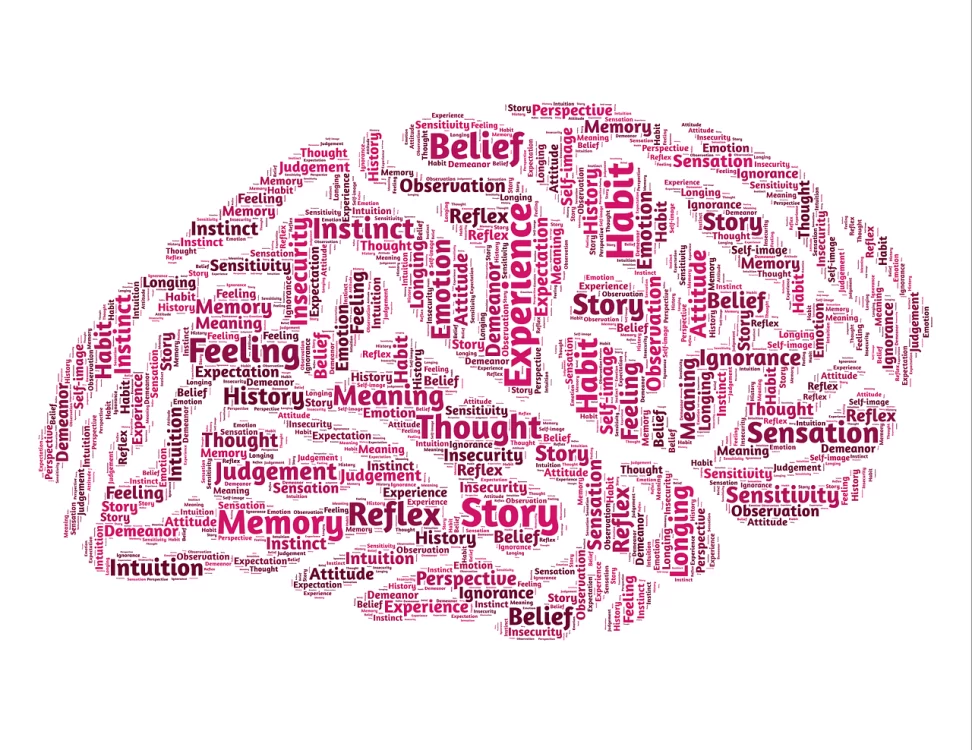The concept of normalcy is heavily relied upon within healthcare in order to classify and diagnose individuals who are deemed to be “abnormal.” However, the idea of abnormality may be heavily contributing to stigma within the clinical psychology field. Because of this concern, Northeastern renamed its “Abnormal Psychology” course. To discuss this topic, I sat down with Professor Kyle Gobrogge, a highly-cited behavioral neuroscientist and a professor in the Psychology and Behavioral Neuroscience departments at Northeastern University. In this conversation with Gobrogge, we discussed the role of language in destigmatizing brain health and, more specifically, the use of the term “abnormal” in the clinical psychology field.
The term “abnormal” originates from the Diagnostic and Statistical Manual of Mental Disorders, a manual published by the American Psychological Association, which provides criteria to diagnose psychological disorders using the classification of “abnormal” behavior. While normal behavior refers to behavior that is typical and expected within a given cultural and societal context, abnormal behavior refers to behavior that deviates from these norms and may be indicative of a mental disorder or other psychological issues. The determination of what is considered normal or abnormal behavior may vary based on factors such as cultural and societal expectations, as well as the specific context in which the behavior is exhibited. In clinical psychology, abnormal behavior is typically defined by the presence of specific symptoms or behaviors associated with a particular mental disorder that causes significant distress in an individual’s life.
As clinical psychology has grown and brain health is becoming increasingly destigmatized, the term “abnormal behavior” and the general language surrounding brain health is being reconsidered. “This type of language does more harm than good despite its medical context,” Gobrogge said. “While abnormal is a useful term for physicians when considering the rest of the body, it is not appropriate for mental health because there is not yet neurological criteria for what actually is normal in the brain.”
Classifying those with psychological disorders as portraying “abnormal” behavior implies that there is something inherently wrong or deviant about that individual who exhibits such behavior. However, the concept of abnormal behavior is often based on societal norms and expectations, rather than on any objective criteria. This means that what is considered abnormal can vary widely across cultures and contexts, and may be influenced by prejudice, discrimination, and bias. It is important to note that “abnormal” behavior is not equivalent to bad behavior, and it does not reflect anything about an individual’s character.
Gobrogge believes language is vital to destigmatizing psychological disorders and mental health. When referring to individuals, “using words such as ‘atypical’ and ‘neurodiverse’ are less heavily loaded terms,” he said.
It is important to note that “abnormal” behavior is not equivalent to bad behavior, and it does not reflect anything about an individual’s character.
These terms focus on the deviation from what is typical rather than implying that there is something wrong with a person. In promotion of this, the psychology course originally titled “Abnormal Psychology” at Northeastern University was renamed this semester to “Clinical Psychology and Mental Health” due to Gobrogge and other faculty’s advocation. This move echoes the American Psychological Association’s decision to change the title of their 115-year-old flagship journal from the Journal of Abnormal Psychology to the Journal of Psychopathology and Clinical Science in 2022.
“While labels of behavior and disorders are still important for treatment and insurance purposes, the medical description of a condition is a better alternative,” they said.
It is important to destigmatize mental health and the field of clinical psychology as a whole in order to increase funding for research that may lead to the discovery of neurological criteria.
An example of this is the recent discovery of schizophrenia as an over-pruning disease of the brain that results in behavioral changes rather than solely a mental health disorder. Treating psychological disorders as the medical conditions and diseases they are can lead to social and medical destigmatization, which can increase support and funding of research on brain health. However, most psychological conditions don’t yet have a definitive underlying cause for their atypical behavioral effects. Gobrogge cites the main reason for the lack of neurological criteria for psychological disorders as simply, the lack of technology.
“The MRI and EKG were incredible advancements in medical technology that allowed for the diagnoses of a variety of medical conditions. Unfortunately, that type of technology doesn’t yet exist for brain conditions.”
It is important to destigmatize mental health and the field of clinical psychology as a whole in order to increase funding for research that may lead to the discovery of neurological criteria. This type of research could transform our understanding of brain health, psychological disorders, and how to best treat individuals. This is why changing course names from “Abnormal Psychology” to “Clinical Psychology and Mental Health” and using more accurate terms to classify symptomology like “atypical” are small, yet impactful actions that could potentially revolutionize the brain as we know it.
Image courtesy of Pixabay


